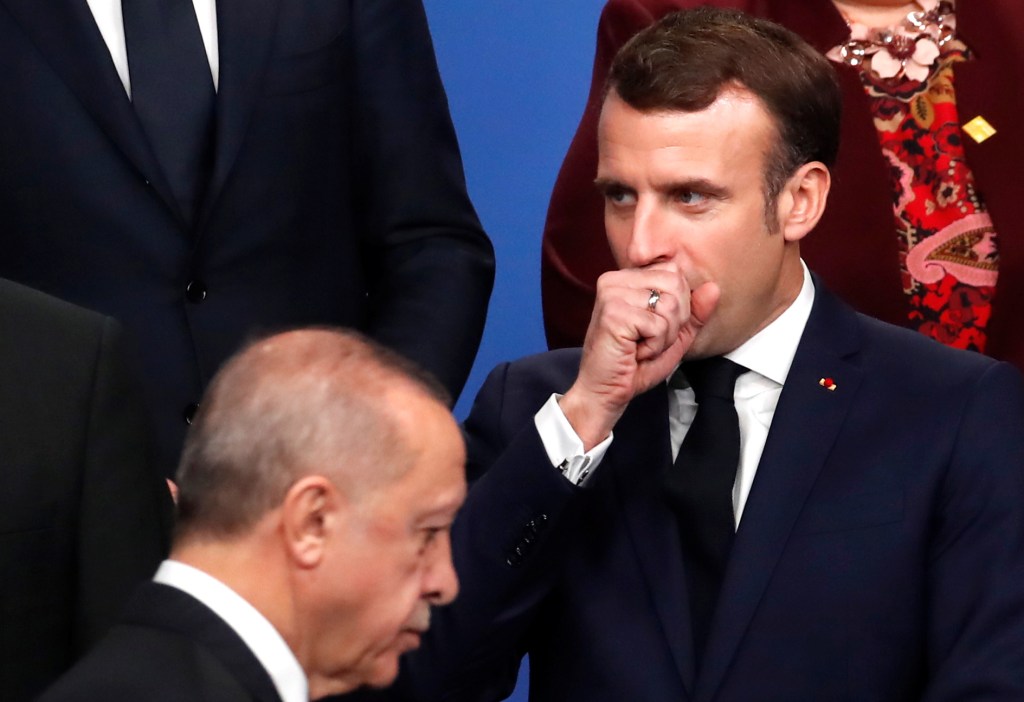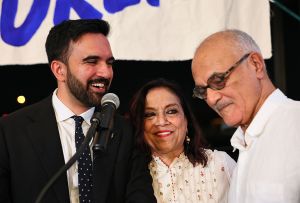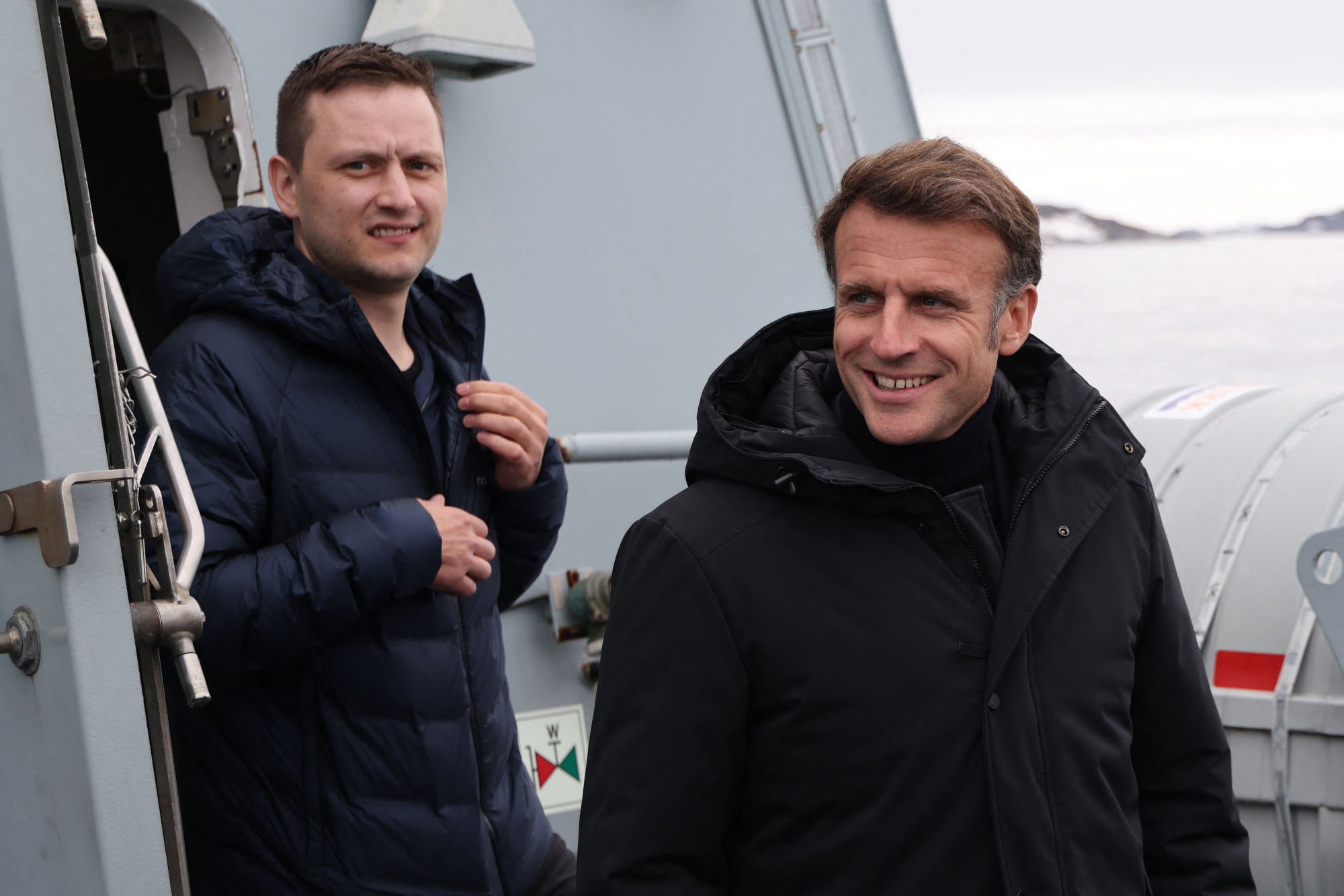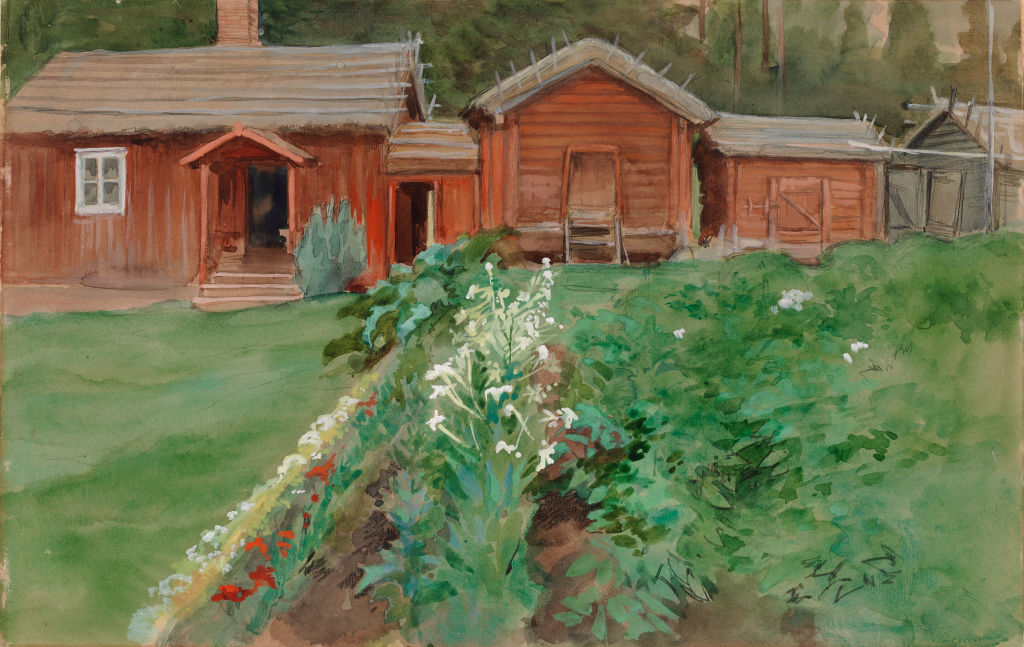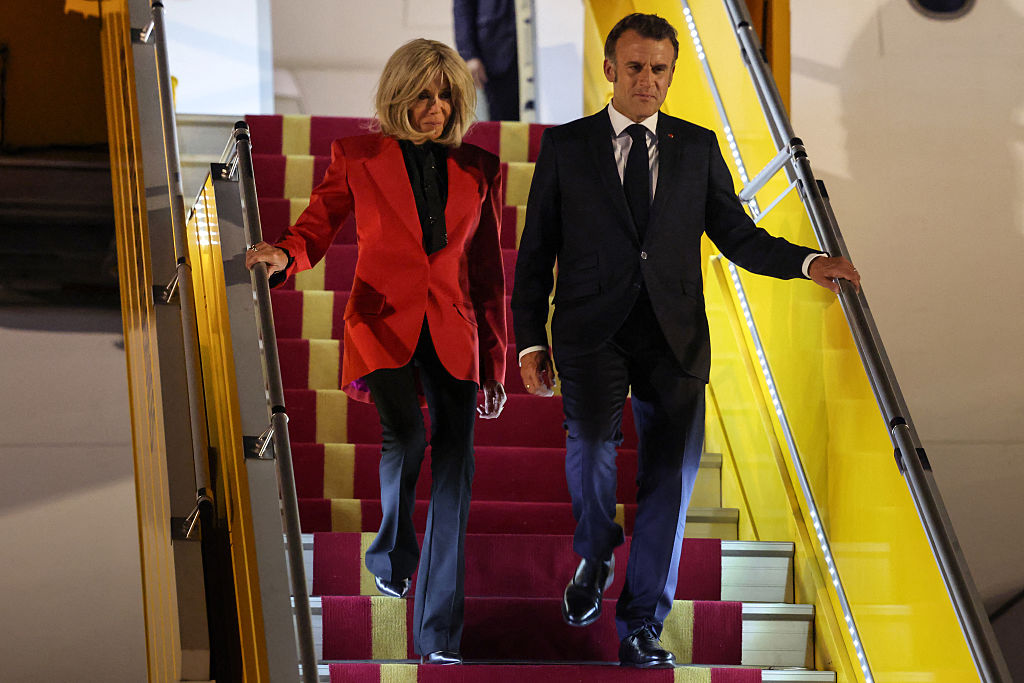Emmanuel Macron’s staunch defense of the right to publish caricatures of the Prophet Mohammed proved popular in France. But now the president has a big fight on his hands abroad: French products have been removed from shops in Kuwait, Qatar and Jordan — and calls for a boycott are spreading.
Turkish president Recep Tayyip Erdogan is the latest to join in: today he urged Turks to stop buying French goods. In a televised speech, he also told world leaders to intervene ‘if there is oppression against Muslims in France’. Meanwhile, Pakistan’s leader Imran Khan has accused Macron of ‘deliberately provoking Muslims’ as Islamabad hauled in the France ambassador for a dressing down. Khan wrote on Twitter:
‘(The) hallmark of a leader is (that) he unites human beings, as Mandela did, rather than dividing them. This is a time when president Macron could have put healing touch and denied space to extremists rather than creating further polarization and marginalization that inevitably leads to radicalization. It is unfortunate that he has chosen to encourage Islamophobia by attacking Islam rather than the terrorists who carry out violence, be it Muslims, White Supremacists or Nazi ideologists. Sadly, president Macron has chosen to deliberately provoke Muslims, including his own citizens.’
Yet in the case of Pakistan, it’s hard not to see an element of selectiveness about the calling out of Islamophobia — and who gets the finger of blame pointed at them by Khan. Macron’s comments were certainly punchy. He said Islam is a religion ‘in crisis’ and claimed in the wake of the killing of a French school teacher that ‘Islamists want our future’. But is this really worse than China’s treatment of the Uighurs?
[special_offer]
In Xinjiang ‘reeducation’ camps, Muslims are allegedly being forced to eat pork, drink alcohol and denounce Islam, as Chinese authorities look to coerce local Uighurs into abandoning their Islamic identity and beliefs as a ‘guarantee’ that their allegiance is with the state and not their religion. These internment camps — of which there could be as many as 380 — are touted as part of Beijing’s ‘counter-terror’ measures. Yet this war on terror looks instead like something far more sinister: the systematic elimination of a people.
But rather than condemning the treatment of Muslims — when the Uighurs so desperately need powerful people to speak up on their behalf — Muslim-majority countries like Saudi Arabia, leading the Gulf states, have appeared to defend China, suggesting it has ‘the right to carry out anti-terrorism and de-extremization work for its national security’. Turkey, which is currently aspiring to replace Saudi as the leader of the Muslim world, is similarly largely silent on Uighur oppression. As for Pakistan, it suggests Uighur camps are a ‘non-issue’.
So it’s Macron’s plan to curtail Islamist separatism through the mainstreaming of mosques — a measure taken elsewhere — which has been deemed worthy of condemnation, rather than the systematic abuse of Muslims in internment camps. The hypocrisy of boycotting France sticks out like a sore thumb when juxtaposed with the unanimous silence on other issues.
This article was originally published onThe Spectator’s UK website.



